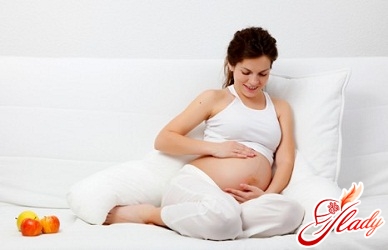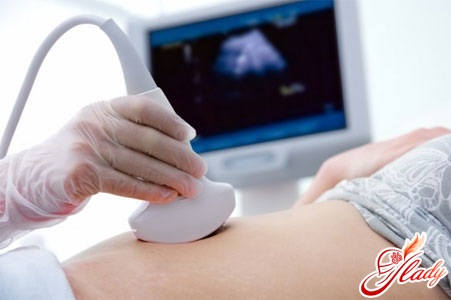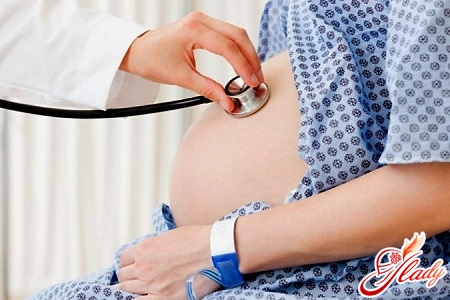 The waiting time for the baby to be born isthe happiest in the life of any woman. However, in addition to pleasant emotions, the expectant mother is accompanied by some minor annoying troubles. Some of these troubles include dizziness and fainting, the causes of which are different. Very often, dizziness is a sign of pregnancy, it is by this symptom that a woman guesses that she is pregnant. A rare pregnant woman can boast that she has never had a feeling that the ground is starting to go out from under her feet. And more than anything else, at this moment, the expectant mother wants to sit down. Moreover, most often, pregnant women complain of dizziness in the early stages of pregnancy much more often than in the later ones. Even in the medical literature describing the symptoms of pregnancy, dizziness is one of the first places. By the way, the fact that the first signs of pregnancy are dizziness and weakness is also explained by the hormonal background of the expectant mother, which has begun to change sharply. Fainting in the early stages of pregnancy is one of the most unpleasant phenomena. And this, in general, is explained very, very simply - even a huge belly, making a woman clumsy, does not cause as much inconvenience as a feeling of nausea, dizziness and weakness. But in the early stages of pregnancy, your "interesting" position is still completely unnoticeable to others. And your pale skin and dilated pupils may remain without the attention of others at that very moment. When you need help most - unfortunately, modern society has almost completely become indifferent and inattentive to the people around you. But if you suddenly feel bad, and there are no loved ones nearby - be sure to ask for help from others, telling them about your condition. In this matter, embarrassment is completely inappropriate - after all, we are talking about the well-being of not only you, but also your baby. After all, you do not want to spend precious time unconscious without receiving any medical help? And dizziness during pregnancy gives such a chance.
The waiting time for the baby to be born isthe happiest in the life of any woman. However, in addition to pleasant emotions, the expectant mother is accompanied by some minor annoying troubles. Some of these troubles include dizziness and fainting, the causes of which are different. Very often, dizziness is a sign of pregnancy, it is by this symptom that a woman guesses that she is pregnant. A rare pregnant woman can boast that she has never had a feeling that the ground is starting to go out from under her feet. And more than anything else, at this moment, the expectant mother wants to sit down. Moreover, most often, pregnant women complain of dizziness in the early stages of pregnancy much more often than in the later ones. Even in the medical literature describing the symptoms of pregnancy, dizziness is one of the first places. By the way, the fact that the first signs of pregnancy are dizziness and weakness is also explained by the hormonal background of the expectant mother, which has begun to change sharply. Fainting in the early stages of pregnancy is one of the most unpleasant phenomena. And this, in general, is explained very, very simply - even a huge belly, making a woman clumsy, does not cause as much inconvenience as a feeling of nausea, dizziness and weakness. But in the early stages of pregnancy, your "interesting" position is still completely unnoticeable to others. And your pale skin and dilated pupils may remain without the attention of others at that very moment. When you need help most - unfortunately, modern society has almost completely become indifferent and inattentive to the people around you. But if you suddenly feel bad, and there are no loved ones nearby - be sure to ask for help from others, telling them about your condition. In this matter, embarrassment is completely inappropriate - after all, we are talking about the well-being of not only you, but also your baby. After all, you do not want to spend precious time unconscious without receiving any medical help? And dizziness during pregnancy gives such a chance.
What is syncope?
Very often people fall into various extremesand confuse fainting with severe dizziness and weakness, or even with a coma, getting terribly scared. In fact, neither one nor the other is right. Doctors call fainting a short-term loss of consciousness - literally for a few seconds. A longer period of unconsciousness - several minutes or more - is a serious complication and requires the fastest possible intervention of medical workers who can provide professional medical care. This is true not only for fainting - nausea and dizziness during pregnancy can also indicate serious problems. Fainting never occurs instantly - accompanying syndromes always appear first, such as:
- Sensation of pulsation in temples
- Cardiopalmus
- Dark circles before the eyes, blurred vision
- Intensive sweating
- Feeling chills or, on the contrary, heat
In the event that a pregnant woman does notsits down and does not relax, a short-term loss of consciousness is possible. This is the main danger of fainting - if no one supports the woman in time, she will fall. And if the fall is unsuccessful. The woman can injure herself and harm the baby, which increases the risk of miscarriage and premature birth.
What's happening?
Of course, such a feeling of malaise is veryweighs down and frightens the expectant mother. And if she does not yet know what exactly causes such a condition, her anxiety and concern increase many times over - after all, any mother worries about her baby, even if it is not yet born. And, in addition, ignorance of the cause of her condition can sometimes lead to complications in the normal course of pregnancy. This happens if the ailments are caused not by physiological changes in the body of a pregnant woman, but by disturbances in the functioning of vital systems and organs. Dizziness and fainting during pregnancy in women can be caused by the following reasons:
- Iron-deficiency anemia
Very often a pregnant woman feelsconstant malaise, dizziness and may faint quite often. In addition, a pregnant woman may complain of a feeling of lack of oxygen, ringing in the ears, the appearance of black spots before the eyes, weakness, increased sweating, trembling. At the same time, the effects of any external factors, such as stuffiness or a large crowd of people, are not associated with this painful condition of a pregnant woman. And the cause may be banal iron deficiency anemia or, in other words, a low content of hemoglobin in the blood, which is responsible for delivering oxygen to the body's cells. Most often, dizziness in the late stages of pregnancy is caused by iron deficiency anemia. It is not difficult to detect the presence of iron deficiency anemia in a pregnant woman - all you need to do is take a blood test. A laboratory blood test will accurately determine the level of hemoglobin in the blood of a pregnant woman and allow the doctor to diagnose the absence or presence of iron deficiency anemia. This condition is corrected quite simply - based on blood tests, the doctor will select a pharmacological drug containing iron and the optimal dose for each specific woman. After taking a course of the drug, as a rule, anemia disappears without a trace. However, pay attention to the following feature of the course of this disease - iron deficiency anemia can proceed for a long time without any external symptoms, not manifesting itself in any way until it takes an advanced form, in which treatment takes more time and requires certain efforts. This is why it is so important to diagnose the disease in time - for this purpose, a pregnant woman should regularly take a blood test.
- Overwork, agitation and stress
As you know, life with the onset of pregnancydoes not stop. And it is no secret that the modern rhythm of life presents people with a lot of surprises in the form of chronic fatigue syndrome and various stresses. And if there are any problems in the family of a woman expecting a child, the situation worsens many times over. However, these stresses not only provoke dizziness, weakness and even fainting in a pregnant woman, but also threaten the correct harmonious development of the fetus - disruption of the laying and development of internal organs, normal growth of the baby. Of course, no expectant mother wants this. Therefore, no matter how difficult it may be, a pregnant woman should adhere to the most gentle regimen possible. Try to rest as much as possible, walk in the fresh air, avoid conflicts whenever possible. Remember that according to Russian law, you have the right to ask for a transfer to light work, without reducing the amount of wages.
- The presence of chronic diseases of the cardiovascular system in a pregnant woman
Very often in women who have alreadypregnancy suffered from any diseases of the cardiovascular system, in the early stages of pregnancy, frequent fainting occurs. In order to avoid this, a woman who knows about her disease should take a responsible approach to the issue of pregnancy and begin preparing for it in advance, taking a preventive course of treatment. Otherwise, dizziness at the beginning of pregnancy will become your constant companion. If in this case, during pregnancy a woman experiences such problems as dizziness and fainting, she must immediately contact her doctor. Self-medication and ignoring this problem is unacceptable in any case - this jeopardizes the normal course of pregnancy and its successful completion.
- Arterial hypotension
Another very common companion of pregnancy,especially in its early stages, is arterial hypotension or, in other words, low blood pressure. With this disease, a woman's blood pressure drops to 100 to 60 or lower millimeters of mercury. This condition occurs as a result of a malfunction of the cardiovascular system, in particular, a decrease in vascular tone. You can suspect arterial hypotension in a pregnant woman in the following situation. The woman has a fairly high level of hemoglobin in the blood, and there are definitely no chronic cardiovascular diseases. However, this woman still has fainting spells, and not just once, which can be attributed to random phenomena. Most often, a woman's condition significantly worsens in the following situations: a pregnant woman is in a stuffy or crowded room, spends a long time on her feet, takes a hot bath, or simply feels hungry. Even sudden mood swings in a pregnant woman can provoke a fainting spell. As a rule, the cause of the malaise is precisely the decrease in blood pressure in the expectant mother. Please note the following nuance - with low blood pressure, a pregnant woman rarely loses consciousness abruptly and suddenly. As a rule, the attack develops gradually. Gynecologists call the following signs of the onset of an attack of hypertension: a woman experiences a feeling of weakness, dizziness or headache. And only if the necessary measures are not taken in time, the pregnant woman loses consciousness. If something similar happens to you, do not rush to panic - as a rule, isolated, rare cases of loss of consciousness do not cause any harm to the health of either the mother or the baby. However, it is still simply necessary to inform the attending physician about this. The doctor will conduct the necessary examination and will be able to accurately determine the cause of dizziness and fainting in a pregnant woman. And knowing the cause, in most cases, attacks can be effectively prevented. In the same case, if you do not do this and do not establish the cause of the malaise, the attacks of fainting will continue more and more often, and their duration will constantly increase. And all this cannot but affect the condition of the fetus. After all, during loss of consciousness, the supply of blood with oxygen deteriorates significantly and, as a result, can lead to the development of intrauterine hypoxia in the child. This is why a pregnant woman should make every effort to minimize these complications.
Low blood pressure
Blood pressure decreases in different waysreasons. One of the main, most common reasons is a sharply increased load on the entire body of a pregnant woman and in particular on the cardiovascular system. Such a load causes certain changes in the work of the heart, which are completely natural and reversible, but can lead to fainting. Increased load on the work of the heart occurs due to the fact that the metabolic processes in the body of a pregnant woman are significantly increased in order to fully satisfy the needs of the fetus for nutrients. In addition, the total blood volume of a pregnant woman significantly increases, since an additional placental circle of blood circulation appears and a natural increase in body weight occurs. In addition, the increased size of the uterus puts pressure on the diaphragm, and creates increased pressure in the abdominal cavity of the pregnant woman. All these factors together have a direct impact on the usual rhythm of the heart. To reduce the load, the body relaxes the heart muscles. This is what ultimately leads to a decrease in blood pressure in a pregnant woman. However, this feature is typical for the 6th - 9th month of pregnancy. Immediately before childbirth, the body mobilizes and, preparing for the upcoming load during childbirth, returns the work of all systems, including the cardiovascular system, to their previous full mode. Another common cause of low blood pressure in pregnant women is a radical change in hormonal levels, a natural process during pregnancy. Changes in the content of various hormones in the blood of a pregnant woman often lead to a change in the rhythm of many vital organs and systems of the body, which in turn leads to a decrease in blood pressure - regular or periodic, depending on the individual characteristics of the body of each specific woman. Dizziness during pregnancy has the same causes as fainting.
Treatment of fainting
Very often pregnant women are afraidreport fainting and dizziness to a gynecologist, believing that they will definitely be hospitalized for treatment and preservation of pregnancy. However, this is not entirely correct. Knowing how to avoid fainting is not enough. If fainting is caused by serious health problems, hospitalization is simply necessary - otherwise, the life of the child and the health of the mother are at serious risk. Staying at home in such a case is the height of negligence and irresponsibility - "maybe" is not the best friend of a pregnant woman. If you are absolutely sure that there are no serious deviations in your body, and you do not suffer from chronic diseases, and also if your gynecologist gives his consent, you can fight the problem of fainting at home. However, be prepared for the fact that you are unlikely to completely normalize your blood pressure to "non-pregnant" numbers. And, in fact, you should not - the main goal that a pregnant woman should pursue is stabilization of her condition and good health. Below are the main methods of stabilizing the condition of a pregnant woman and preventing fainting. All these methods are approved by leading doctors - gynecologists and will not cause any harm to either the pregnant woman or her child. However, before using them in practice, still show them to your doctor - rarely, but sometimes it happens that individual features of the course of pregnancy or health conditions can become a contraindication for these methods to eliminate dizziness and weakness during pregnancy.
Physiotherapy
There is a misconception that a pregnant womanshould try to rest and lie down more. However, in reality, this is not true at all. After all, pregnancy is not a disease, and a pregnant woman is not a sick person. Such tactics can lead to a variety of consequences, in particular, to excessive weight gain and problems during childbirth. Gynecologists have long noticed a strict pattern - the more active a pregnant woman leads, the easier she tolerates the inconveniences associated with pregnancy, and the easier her childbirth is. Of course, we are not talking about a woman taking on unbearable, exhausting physical exertion. However, physical activity is simply necessary for the normal course of pregnancy. In addition, it is necessary for the well-being of the expectant mother. Correctly performed, such a set of physical exercises not only tones the body of a pregnant woman, but also has the most beneficial effect on the work of the heart muscle, lungs and nervous system, and also maintains the abdominal muscles normal, which is important for a pregnant woman. Well-developed abdominal muscles effectively support the growing uterus, acting as a natural bandage, and also provide an invaluable service during pregnancy. In addition, women who exercise during pregnancy very quickly experience normal blood pressure and a tendency to fainting disappear. Thus, exercises will help stabilize the condition of any pregnant woman. However, in no case should you select a set of physical exercises on your own - this should be done by a specialist. Ask your doctor to tell you about this in more detail - perhaps your clinic has special classes for pregnant women. If there are none, a gynecologist will prescribe you a whole set of exercises that you can do independently, at home. Also in large cities there are special schools for expectant mothers, which provide classes for pregnant women. In some of them, pregnant women do gymnastics in swimming pools. However, remember that the activities of such organizations must be licensed by the Ministry of Health. After all, pregnant women entrust them with the most precious thing – the life and health of their children. Also remember that you can only do therapeutic exercise if the pregnancy is going smoothly, without any serious deviations. Otherwise, therapeutic gymnastics will have a completely opposite effect and will bring a lot of trouble to both the pregnant woman and the doctors. Below are some cases in which doing physical exercise is strictly prohibited:
- Chronic cardiovascular diseases,causing a blood circulation disorder and are in acute stages. Women with these diseases should be engaged in physical training only under the supervision of an experienced specialist in this field. Classes should be strictly according to the individual course, selected in accordance with the course of the disease in each pregnant woman.
- Lung diseases that are in the acute stage, such as an open form of tuberculosis, pulmonary neoplasms, pneumonia, pleurisy of any origin.
- Diseases of the kidneys and urinary tracts, which are in acute stages.
- The threat of termination of pregnancy - increased toneuterus, any kind of bleeding, regardless of what caused their occurrence. By the way, I would like to note that if a pregnant woman has bleeding of any intensity, she needs to seek medical help as soon as possible - this condition is a rather big threat.
- Toxicosis of the second half of pregnancy is gestosis.
- Any acute infectious diseases.
Reception of broths and medicines
Our grandmothers also had similar complicationstook various herbal decoctions that have a tonic effect. However, be careful and do not change the recommended components on your own, as many other herbs are strictly contraindicated for women during pregnancy. Do not use this decoction under any circumstances if you have previously had cases of allergy to any other herbs. In addition, be sure to consult with your doctor before taking the decoction. To prepare a tonic decoction, you will need the following herbs, which can be purchased at a pharmacy:
- Grass of St. John's wort
- Dry or fresh strawberry leaves
- Dry or fresh rose hips
These components must be taken in equal proportions,grind. Place three tablespoons of the mixture in a thermos, pour three glasses of boiling water. Close the thermos with a lid and leave the decoction for 6 hours so that it is properly infused. After that, strain the decoction using gauze. A pregnant woman should take it at least three times a day, half a glass, half an hour before meals. If you are not a fan of preparing various decoctions at home, you can replace them with ready-made preparations that can be easily purchased at any pharmacy without a prescription. However, remember that even these harmless drugs can be used by a pregnant woman only after prior agreement with your attending physician - gynecologist, who can really assess the possible benefits and harm from these drugs. For example, tincture of aralia can normalize low blood pressure in a pregnant woman in about one week of use. The recommended dosage of the drug is about 30 drops, which must be dissolved in half a glass of clean cold water. The tincture should be taken twice a day - in the morning on an empty stomach and before bed. Eleutherococcus extract has approximately the same effect. However, this drug has another pleasant side effect - it increases the level of hemoglobin in the blood of a pregnant woman. This feature is especially effective in helping to normalize the condition of a pregnant woman who has been diagnosed with iron deficiency anemia by a doctor. To achieve the maximum effect, the drug should be taken as follows - dilute 10 drops of the extract in 100 grams of milk and drink 5 minutes before meals. The tincture should be taken at least 3 times a day. The drug "Pantocrine", which includes an extract of deer antlers, can have a very good tonic effect on the body of a pregnant woman. As a rule, there are no contraindications for taking this drug. Doctors recommend that pregnant women take the drug according to the following scheme. In the morning and evening, you need to take one tablet, and at lunch - two. You can take the tablets regardless of food intake.
Prevention of syncope
In addition to taking tonic drugs, it is veryIt is also important to take other precautions. An exhausted, tired pregnant woman has a much higher chance of fainting than a well-rested and well-slept one. The recommended average daily sleep duration for a pregnant woman is at least 12 hours. In addition, the expectant mother should spend at least 2 hours in the fresh air - be sure to walk. Water treatments work real miracles - swimming and swimming are very useful for expectant mothers. However, keep in mind that hot baths are strictly prohibited for pregnant women, and when taking a contrast shower, you need to ensure that the water is not too hot or too cold. Be sure to pay close attention to your diet - a pregnant woman must receive all the necessary vitamins, minerals and microelements necessary for the harmonious development of the future baby. It is also very important to include in the pregnant woman's menu foods rich in proteins, which are necessary for the growth of the child. Also, gynecologists advise a pregnant woman to change her usual meal schedule - meals should be fractional. Reduce the amount of food, but increase the number of times you eat it. On average, a pregnant woman should eat every two hours. This measure will not only help prevent fainting, but will also save the pregnant woman from such an unpleasant companion of pregnancy as heartburn.
Complications of fainting
As mentioned above, leaving fainting anddizziness without due attention from the pregnant woman and gynecologists will only aggravate the situation and lead to the development of all sorts of, often quite formidable, complications of the normal course of pregnancy. Toxicosis of the first and second halves of pregnancy, the threat of spontaneous termination of pregnancy, intrauterine hypoxia, miscarriage and premature birth - this is only the main, but far from complete, list of possible threatening conditions of a pregnant woman. Also very often obstetricians - gynecologists during childbirth in those women who suffered from dizziness and fainting during pregnancy, note a number of characteristic complications. Firstly, the amniotic fluid is poured out either too early or too late. Secondly, such a phenomenon as weakness of labor is very often diagnosed. And finally, bleeding - it can occur both during childbirth and in the early postpartum period. The peculiarity of women with low blood pressure is that even a relatively small blood loss can lead a woman to such a condition that she will need the help of resuscitators. The postpartum period in women with low blood pressure is also often complicated by various factors. Discharge after childbirth in such women continues longer than usual. This happens because the uterus does not contract effectively enough. And, in addition, various inflammatory processes in the uterine cavity are often encountered - in particular, acute postpartum endometritis.
First aid in fainting
However, sometimes a pregnant woman still falls infainting, despite all preventive measures. And therefore it is very important to know how to properly provide emergency care if a pregnant woman has fainted. It is very important for the relatives and friends of the pregnant woman to know this information, since most often they have to provide first aid. The most important thing that needs to be done immediately is to lay the pregnant woman who has lost consciousness on a horizontal surface so that her head is at the same level as the heart, but in no case higher. Free the pregnant woman from tight clothing - unbutton the collar, untie the belt. Be sure to always keep ammonia on hand in your home medicine cabinet - if the pregnant woman does not come to her senses after one minute, you can give her a cotton swab soaked in ammonia to smell. Never give her a jar of ammonia to smell - this can lead to a burn of the mucous membranes of the nasopharynx. And if a woman has severe dizziness during pregnancy, there is no need to use ammonia. After the woman comes to, it will be very useful to give her 30 drops of cardiomin to drink and give her hot tea with lemon, which also has a good tonic effect. Be sure to inform your doctor - gynecologist about the incident and, if he deems it necessary, seek help at a medical institution. After all, not always, when a woman faints, first aid is the only necessary one. In the event that a pregnant woman suddenly feels acute discomfort - dizziness, nausea, ringing in the ears, blurred vision - she needs to try to lie down as quickly as possible, or at least sit down if this happens outside the home. In no case should you be embarrassed - ask for help from the people around you, telling them that you feel bad - no one will refuse to help the expectant mother, emergency aid in case of fainting is very important.
Will a gray top spin and bite a barrel?
As the pregnancy progresses, the womananother danger begins to lie in wait - loss of consciousness in a lying position. It would seem impossible? However, such a phenomenon occurs quite often. Doctors explain such conditions by the fact that the enlarged uterus exerts a certain pressure on the large vessels inside the abdominal cavity, which leads to loss of consciousness. However, in fairness, it should be noted that this only happens if the pregnant woman lies on her back for a long time. The resulting compression syndrome of the vena cava is not an independent disease. Rather, it can be characterized as an insufficient form of adaptation of the woman's cardiovascular system to pregnancy. The large uterus compresses the lower part of the vena cava, as a result of which the heart receives little blood. The woman feels a lack of air, her breathing becomes noticeably more frequent, her eyes become cloudy, tachycardia and pale skin may appear. This condition does not require any special treatment. However, a pregnant woman should remember this feature and try under no circumstances to spend a long time lying on her back. The most optimal sleeping position for the expectant mother is lying on the right side. Remember that simple precautions will help you avoid many problems. After all, pregnancy is nothing more than waiting for a small miracle. And it is within the power of the expectant mother to ensure that the time of this waiting is as rarely as possible overshadowed by ailments and fainting during pregnancy does not become the main fear of a woman. We recommend reading:









